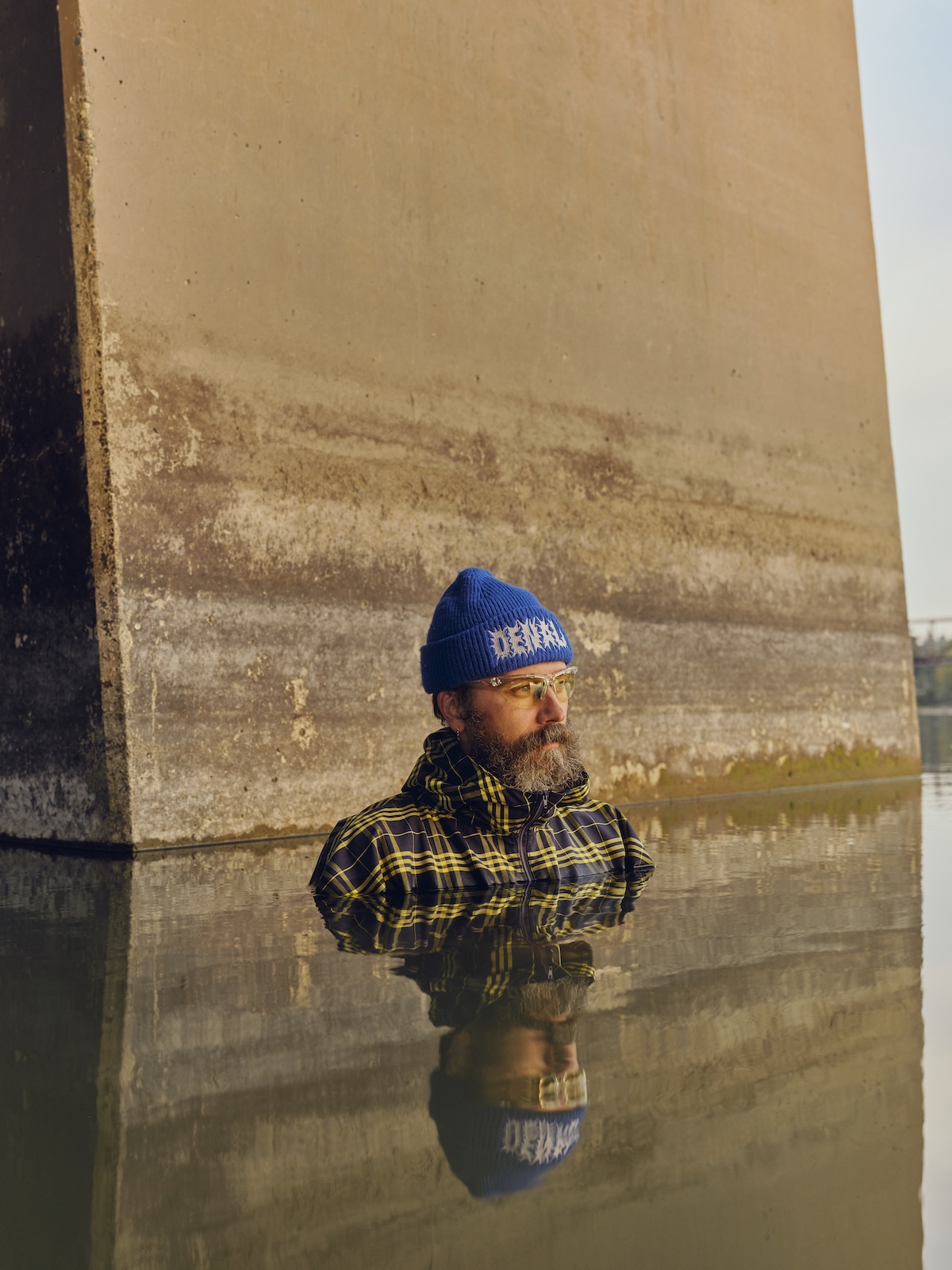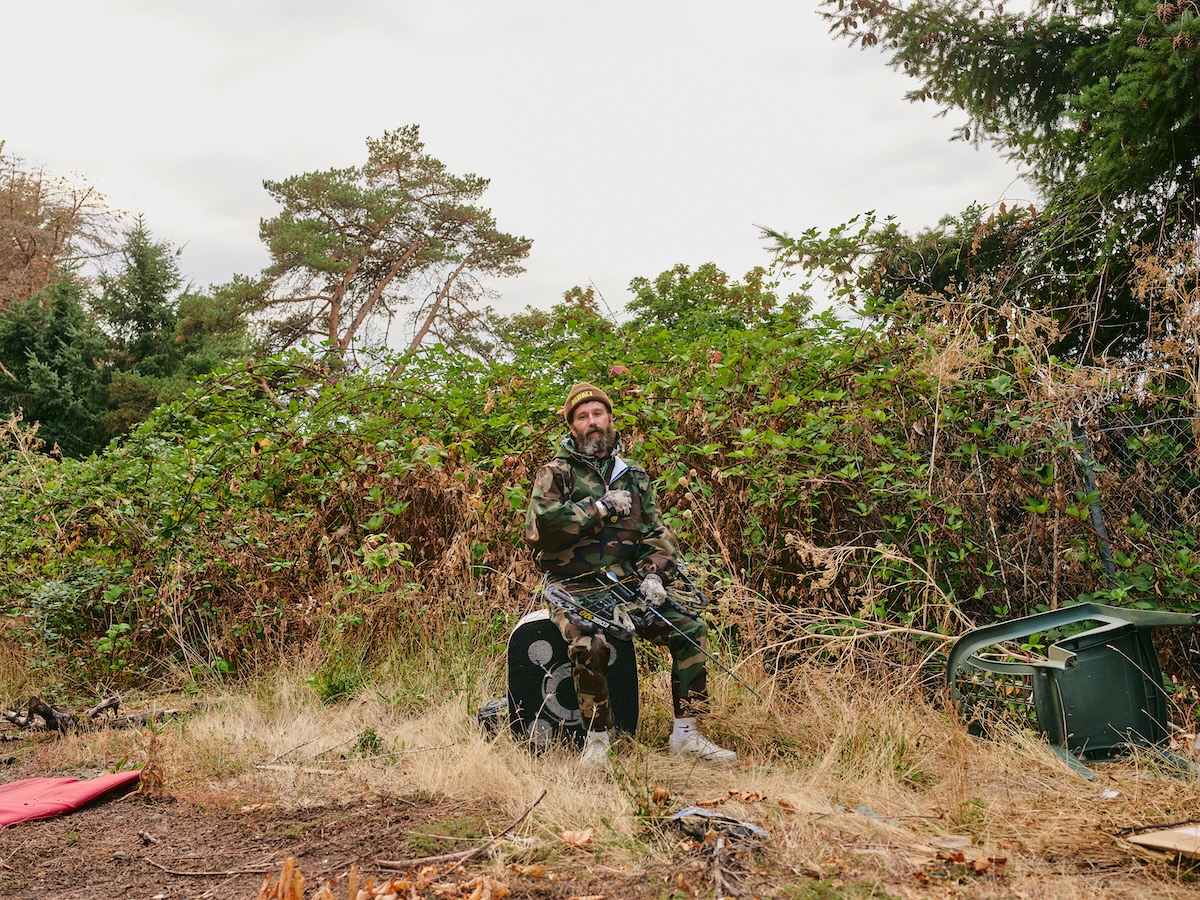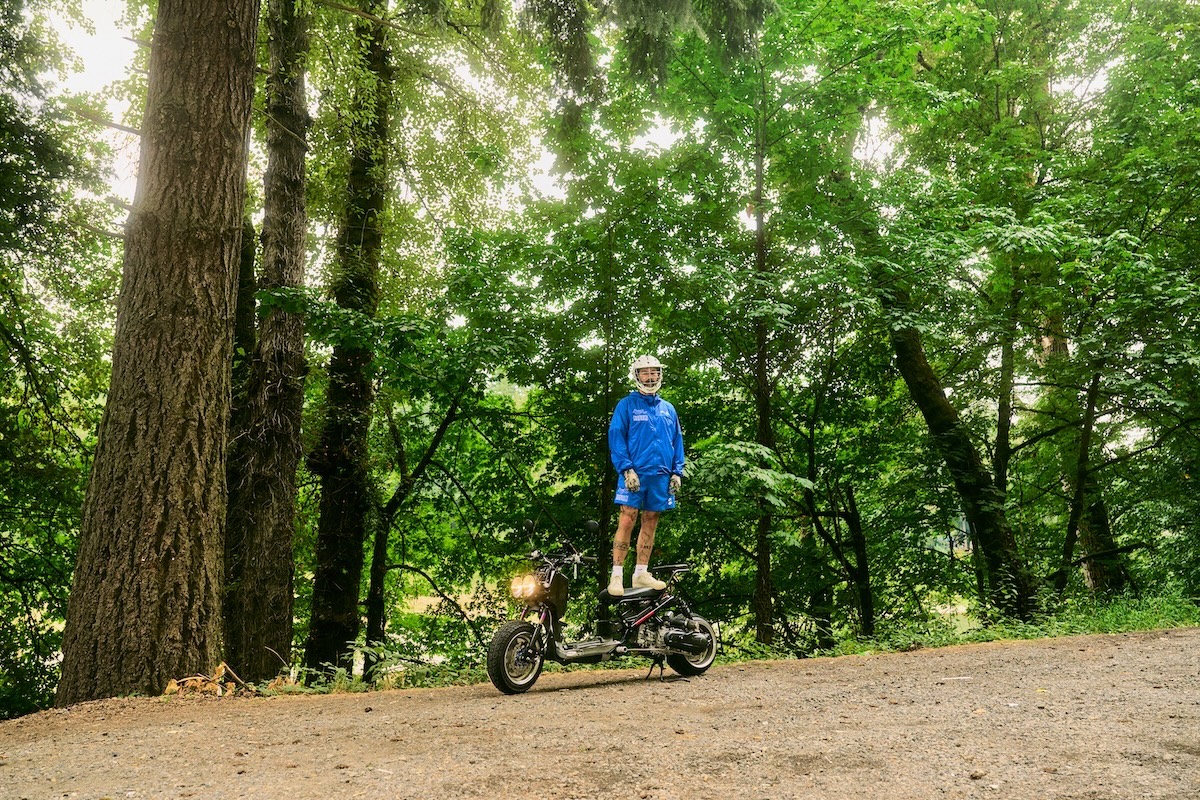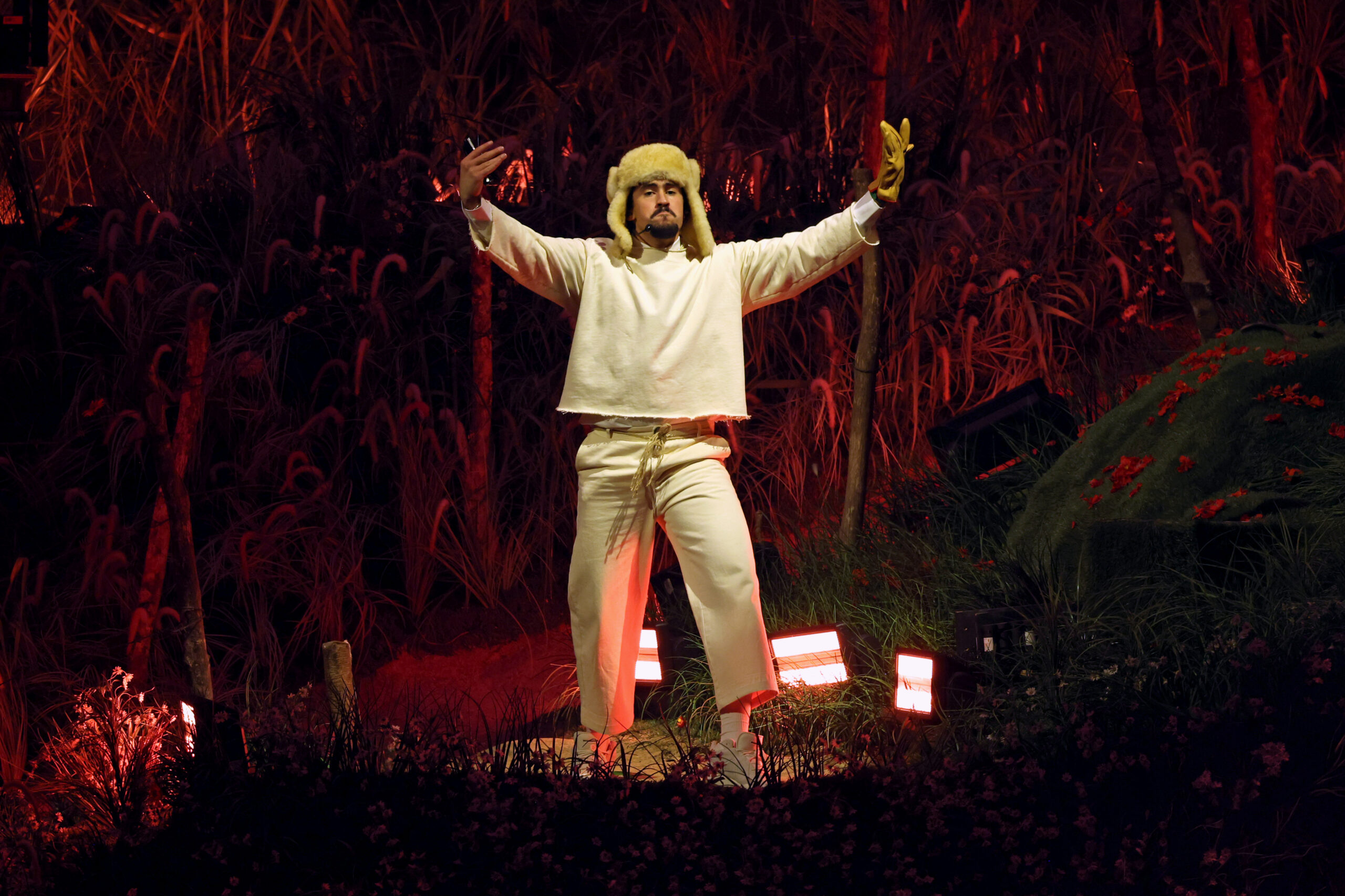There is a quote attributed to the late Athabascan elder and ambassador of indigenous Alaskan culture, Howard Luke. It’s about the concept of Gaalee’ya.
“Gaalee’ya is a luck that you get by learning to live right with the land and the animals, including people, and everything around you, to respect everything.”
We shouldn’t have to live in a world where we’re begging our indie rock bands to save us. And “save us” is doing a bit of hyperbolic heavy lifting in that sentence. But the plain fact is, when the powers that be seem more hellbent than ever on making the world a shittier place for just about everyone and everything, an indie rock band using its platform and message to shine a light on a corner of the world that often feels disconnected from the rest of us is a good thing.
For John Gourley, doing what he can, whatever he can, isn’t some Bono-like Messianic sense of musician’s duty. It’s just what you do in Alaska.
“That’s your responsibility as an Alaskan, and as part of that community,” he says. “You share what you can do with that group. It’s like anywhere else. I go to a mechanic to change my oil, I go to the doctor to get checked out, and that’s my contribution. You show up and you give that.”
Gourley’s unorthodox childhood was the result of the barter system. He says it was always a very Gourley family thing to not care about money or the exchange of money for goods and services. Do what you can for others, and they’ll do it for you. That’s the belief.
Gourley tells the story of when his father was tasked with building a shed for Joe Redington, Sr., one of the founders of the Iditarod, a thousand-mile dogsled race through Alaska.
“He builds this shed, and he looks around and goes, ‘You know what? Don’t worry about the money. Would you trade me a dog team and a sled and just show me the ropes?’” Gourley says. “So Joe Redington Sr., trades him this dogsled team for building the shed, and my dad immediately takes out into the woods again.”
In an instant, the Gourley family became a sled dog family. His parents would disappear into the Alaskan wild as a husband-wife team. Their one-room cabin the headquarters for their operation. They’d heat up water to bathe in the metal tub. They looked up at the massive sky of stars every night. It sounds like something out of a movie or fairy tale. But for Gourley, it was just childhood, and he almost took for granted to the point that, while Alaska was always in his DNA, it was never something he explicitly wrote about until he felt like it was time to do so. Thus came Shish, the most explicitly Alaskan record Gourley has written, because he felt he owed it to Alaska and he owed it to himself.
“I grew up in this really specific community and I had never really written about that,” he says. “And honestly, one of the things I kept thinking about while we were making this album was something my dad said to me. He sits up at night—just to get an idea of what a freak my dad is—when he lays in bed at night, before he goes to sleep, he thinks about the items you would put into a six-foot toboggan and carry out into the woods with you if you were leaving today. He just kind of frames it as, ‘If I were to leave, these are the items I would put in a six-foot toboggan.’ And he makes this list nightly for whatever reason. He’s just like, ‘Yeah, when I lay in bed, that’s what I think about. Do I have the right items? I’ve got the tarp, I’ve got the hatchet with the blunt back so I could use it as a hammer.’ It’s inspired by a lot of that. I think I realized, in going back home, that that’s where I feel the most comfortable. I feel the most comfortable when I’m out riding four-wheelers and picking blueberries. There is no Portugal. The Man out there. That life doesn’t exist.”

The idea of Alaskan self-sufficiency is at the heart of Shish. Gourley has always been the nucleus of the band, and while different albums involved different levels of other members’ contribution, Shish was more of a solitary act. He felt inspired to do something (mostly) by himself and, mostly, for himself.
“I like being responsible for myself, accountable for everything around it,” he says. “Some of the best moments creatively that I’ve had have been when we were putting out our own records. I would just move at the speed that I want to move. I didn’t even expect to have an album together and ready to go, but I popped into the studio and started working.”
He worked with Kane Ritchotte, who spent some time with Portugal. The Man around In the Mountain In the Cloud, Evil Friends, and Woodstock, but has a thriving production career on his own with artists like Miley Cyrus, Phoebe Bridgers, and beyond.
More than his past in Alaska, though, Gourley found influence in his present more than anything. Specifically, from his daughter, Frances, and the life he has with her.
Frances was diagnosed with an extraordinarily rare neurodegenerative disease. Gourley doesn’t love talking about that much. What father would? What he does like talking about, is how much of a “freak” Frances is in the most wonderful and endearing ways that any artistic father would hope for. It’s telling that he uses the same word as he did with his father, whom he clearly reveres. He holds the freaks in his life in high regard.

They’ve been taking in a lot of Broadway musicals together, as it’s Frances’s latest obsession, aside from the film Death Becomes Her. What 7-year-old doesn’t love Death Becomes Her?
But Frances’ condition and her age manifests in what Gourley describes as a very present and immediate way of life.
“I just kind of stepped back and thought about my daughter, Frances, just kind of the way she operates,” he says. “She’s very, like, ‘Whatever I feel like doing, I’m gonna do that.’ And I think I picked up her vibe a little bit.”
Listening to Shish, you can clearly see the arc of Portugal. The Man. It’s the logical next step of an artist from the wildest wilds the continent has to offer, who put out a handful of records of varying idiosyncrasies before tapping oil with a mainstream hit on a major label, and then felt the need to get back out in the wild by himself and escape the machine a little bit. It is beholden to no expectations—no suits begging for a radio single, no voice in his head to write something that can work in the back of a commercial. He follows his own path and often changes direction mid-song. There are thrashy, shreddy guitar parts, there are sharp left turns into sunnier territory. It’s frenetic and turbulent at moments and calmer the next. It’s less beholden to conventional songwriting structure of verse-chorus-verse-chorus-bridge-chorus, which is something Gourley might’ve pulled from the whole Broadway thing.
“I think that just seeped in a little, where you get this: The story builds, and they find love or whatever happens in the story, and then you get a little bit of that recap of everything or the closure,” he says. “It takes you somewhere at the end. … They’re not all verse-chorus songs. And when they are verse-chorus, the chorus changes. The story’s growing.”

As with all of his art, Gourley says that the story he’s trying to tell is very much the story of Alaska. Because he is part of Alaska, even if he’s not there all the time. Alaska leaves its mark on you, and you hope that you can repay that the same as you would hope to repay your neighbor after they help you chop firewood or fix a roof.
And right now, Alaska needs help from anyone who can help. The Ambler Road project, which the president just signed an executive order approving, would add a 211-mile-long paved road in the Alaskan wilderness for the sake of mining.
Gourley gets animated when the topic comes up. He’s aware of the ramifications of the road on the wilderness, and at the same time how that impact on the ecosystem will affect Alaskans.
“The state and Trump administration are looking to spend $2 billion of taxpayer money to build a road across permafrost and tundra,” he says. “And if y’all in the lower 48 don’t know anything about permafrost, it melts, it moves. It is going to be something that we maintain every year to come. That road is going to crack, it’s going to fall apart. Alaskan taxpayers are paying for this for an Australian mining company to come in, and that’s the most ridiculous thing for me.”
This is where that idea of Galee’ya comes back into play. Gourley doesn’t use that term or even the idea in our conversation, but it’s clear that it’s something that is just embedded in him. He wants to live right by the landscape, the animals, and the people of Alaska. His music is part of how he can get his message out, again, even if it’s not his expressed goal to get on a soapbox. He just happens to have one at the moment.
“What is actually happening here is that Alaskans—Alaskan small business owners, Alaskan builders, contractors, hunters, fishermen—-their tax money is going to build a road for an Australian mining company to profit and take your resources out of your home, out of your state, and that in turn will destroy great swaths of nature and spawning grounds and caribou migration,” he says. “It will mess with a lot of Alaska. It will open up those roads to fanboats and sport hunters that come in with money. These are not you. This is not you as an Alaskan. These are sport hunters who want to get a caribou, which is a reindeer. They’re coming out here and killing fuckin’ reindeer! They’re taking these fanboats out. It doesn’t get talked about enough when people like Rogan or whoever talk about conservation within the sport hunting community. ‘Oh, we’re taking the big bull because it’s gonna kill the young and we’re maintaining this.’ When you come in and spook that herd—and you’re going to, no matter what you think, fanboats will do this—you are scaring these animals off of natural migration routes. Caribou are on 20-year migration routes back home. They move along once they’ve eaten everything here, they keep moving. You see these big stories about large herds of animals being found dead. What is happening out there? This is a lot of what’s happening.”
So, for all of the talk from Gourley about making an album by himself and for himself, he sure seems to care a lot about the big picture. Maybe it’s how he was raised or something.



